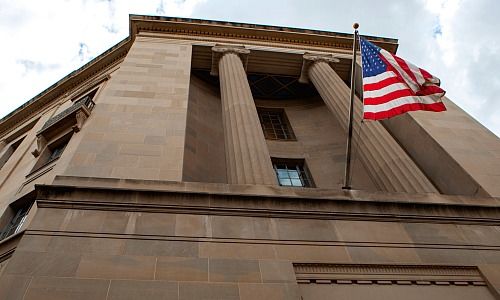Milan Patel: «U.S.' Swiss Bank Probe Turns to Singapore»
A long-winded criminal investigation into Swiss banks in the U.S. has gone largely silent. As banks in Switzerland await their fate, U.S. authorities are turning their focus to Singapore, a U.S. lawyer tells finews.asia.
 Milan Patel is a former senior trial attorney for the Internal Revenue Service. He is now in private practice as the co-head of law firm Anaford's U.S. tax group in Zurich, Switzerland.
Milan Patel is a former senior trial attorney for the Internal Revenue Service. He is now in private practice as the co-head of law firm Anaford's U.S. tax group in Zurich, Switzerland.
Patel's practice focuses on private clients with an emphasis on international tax, trusts and estate planning, succession planning, and cross-border business structuring.
What stage of investigating do you believe U.S. justice authorities are at in their Swiss bank program?
The DoJ still has Category 3 banks to finish, I don't believe all of those are done. I think probably they are gathering all the data on Category 2 banks, processing and looking throughout with a view to getting Category 3 banks finished, then going back to Category 1. Because what they really want to see is flow of funds, is there another Wegelin or Bank Frey type of situation, did they willingly accept money knowing there were problems with these accounts, or were they actively less involved and the accounts were legacy stuff.
Viewed from outside, the Department of Justice, or DoJ's, approach can seem arbitrary. What's the method behind it?
That’s why in part the DoJ did it this way. They said, 'lets get as much info as possible from Category 2 banks who have to provide data, then go to Category 1 and say, if there is anything, here’s what we have.' They might not have anything, and those would be easier ones can close up.
«Wegelin and Bank Frey Were Extreme Cases»
Others might have data indicative and more akin to a UBS or Credit Suisse or even Wegelin or Bank Frey, an extreme case where a bank is openly pursuing U.S. bank accounts being thrown out of other banks.
What sort of timeframe should the Category 1 banks prepare for?
The DoJ hasn’t announced anything, but I believe realistically a goal for Category 3 might be December 2016, and then to begin dealing with Category 1 in 2017.
The easy ones to resolve I would say are closed up in 2017. I’m talking about those caught up in crosshairs but not necessarily with big exposure. Those with larger exposure, along the lines of Wegelin in taking UBS accounts for example, will be penalized for that for sure.
«Procedure Dragging On»
We’re closely in touch with some Category 1 banks about their cases, and they tell us it is still ongoing. They’re in a holding pattern. While they want it to be closed as soon as possible, I don’t see how the DoJ are going to be willing to close anything without analyzing that data from the other categories.
Swiss banks say they are worried about the U.S. presidential election in November holding up their criminal proceedings.
There is no way the change of administration changes anything: this train has already left the station. That type of political change in the administration has no bearing on what the DoJ does in terms of investigations.
What about the changes at the DoJ, with a new head of the tax division, Caroline Ciraolo, coming in last year?
We’ve only seen an increase on focus on offshore. The only thing I see in terms of a change on policy is focusing on other jurisdictions. Panama is an area because of the Panama Papers and there is investigation going on with that right now. I have strong reason to believe that Singapore is on their list.
Why?
If you look at what the DoJ is doing from the Swiss investigation, they just follow the flow of money, and that’s a very smart way to do it. With the data the DoJ got from Category 2 banks, the key things they wanted to find out is where does the money go if the account is closed.
That was critical: to know exactly what bank and in what country the money went to if it went outside Switzerland. So they know all that, and they will target who they perceive as biggest receptor of funds, if one bank in particular stands out.
«Clearly, Singapore is High on The List»
It’s definitely clear from our work that it’s happening. When a client does a voluntary disclosure, we represent the taxpayer and we’re dealing with the IRS, but the DoJ will call us separately and interview. They’re not allowed to tell us who they’re investigating, but if you’re reading tea leaves in dealing with them, clearly Singapore is high on their list.
What else do the banks have to worry about in terms of this tax investigation?
This is not just a tax issue, it’s also very much an SEC issue. The question comes up if you had U.S. clients prior to the Dodd-Frank legislation [consumer protection introduced six years ago following the financial crisis of 2008-09] and were giving them securities advice without being registered with the Securities and Exchange Commission. That’s probably in some ways a bigger problem for the Category 1 banks themselves, that many were still advising people and may not have had the proper SEC licensing and authorization. That’s definitely something they will look at.

























